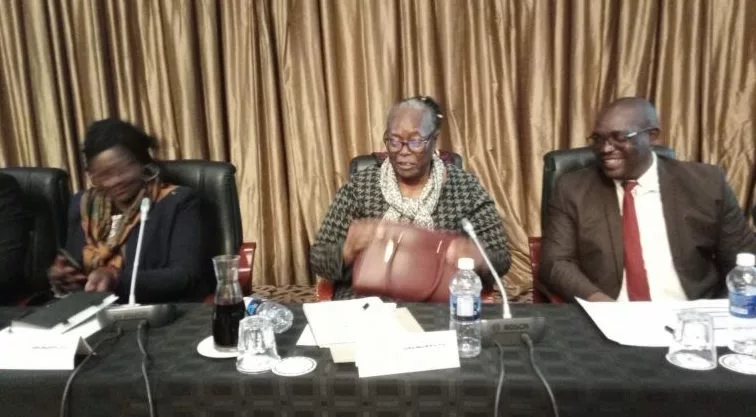|
Getting your Trinity Audio player ready...
|
The Ministry of Skills Audit and Development held a workshop in Harare with various stakeholders where it emerged that it is important to deploy critical and relevant skills to explore and exploit natural resource endowments in the metropolitan province.
“In line with His Excellency, the President of the Republic of Zimbabwe’s mantra of “Building a Prosperous Zimbabwe, Leaving No one and No Place Behind”, the Devolution and Decentralization Agenda seeks to make the system of governance community-based, people countered, and facilitate the growth of provincial economies. The agenda embraces the provincial and local economies’ participation in making decisions on issues that affect them and in the exercise of the powers of the State, whilst upholding the preservation of national unity.
“The country is endowed with vast natural resources, which are on the surface and underground. These resources are ready for judicious exploitation, beneficiation, and value addition to promote value chain development and equitable economic development in provinces in line with their competitive and comparative advantages. However, the key question is, do provinces have adequate, critical, and relevant skills to explore and exploit their natural resource endowments? The Ministry of Skills Audit and Development is therefore undertaking an overview of the skills landscape in the country’s ten provinces through provincial skills consultation workshops,” said Ambassador Dr. Rudo Chitiga, the Permanent Secretary in the Ministry of Skills Audit and Development.
On the need for aligning the informal sector in contributing to the development of the Province, Ambassador Chitiga alluded to the importance of the identification, auditing, accreditation, and development of all critical skills in such places like Glenview 8 Home Industry and Mbare’s Siyaso Trading Marketplace.
“It is important for our vocational training centres to enrol such skills for further development and transform them from being informal into being formal and professionally standardize their operations.
“These are critical skills that need to be audited and developed from being informal into formal so that we close the national skills gap in our country. Some of them should be trained in embracing technology, business skills management, co-ordination, marketing skills, retooling, among others,” she added.
Mzi Chizura, the Business Development Manager of Sandvik Zimbabwe, said there is a need for industrial retooling and continuous training in line with modern trends in the 4th Industrial Revolution.
“As a company, we continuously introduce modern machinery and infrastructure that is critical in sectors like mining. We deploy our technicians to mines and factories to train other workers there and service the equipment so that we get the best results in terms of production and productivity,” Chizura said.
Prof Edmore Masama from the Zimbabwe Open University called for the establishment of new machinery or equipment in tertiary learning institutions to complement the production of required skills that suit national development strategies.






